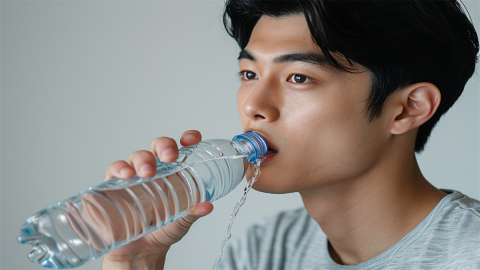Can patients with chronic kidney disease drink more water?
In general, patients with chronic kidney disease (CKD) should not drink excessive amounts of water. If necessary, it is recommended to consult a physician. Detailed explanations are as follows:

Patients with chronic kidney disease often experience symptoms such as edema and hypertension. Due to impaired kidney function, glomerular filtration rate decreases while the renal tubules' reabsorption function remains relatively normal. This imbalance between glomerular filtration and tubular reabsorption, along with a reduced glomerular filtration fraction, leads to water and sodium retention, causing accumulation of excessive fluid in the body that cannot be effectively excreted through urine, thus resulting in edema. If patients drink excessive water at this stage, urine output may not increase correspondingly, leading to further fluid retention, worsening of edema, fluctuations in blood pressure, and additional damage to the kidneys.
The kidneys of patients with chronic kidney disease have already sustained a certain degree of damage, resulting in a reduced ability to regulate water and electrolyte balance. Drinking excessive water may impose an additional burden on the kidneys, requiring more energy and resources to process and excrete the excess water, which could potentially accelerate the deterioration of kidney function. Particularly for patients in stage III and beyond of chronic kidney disease, complications such as renal anemia, hyperuricemia, and hyperkalemia may progressively develop. The overall dietary principle should focus on low-salt, low-fat, and light meals, while also limiting the intake of foods with high water content to avoid increasing the burden on the kidneys.
Patients should appropriately control their daily water intake, adjusting according to individual conditions and medical advice. It is important to avoid consuming excessive amounts of water at once to prevent exacerbation of symptoms such as edema and hypertension.







